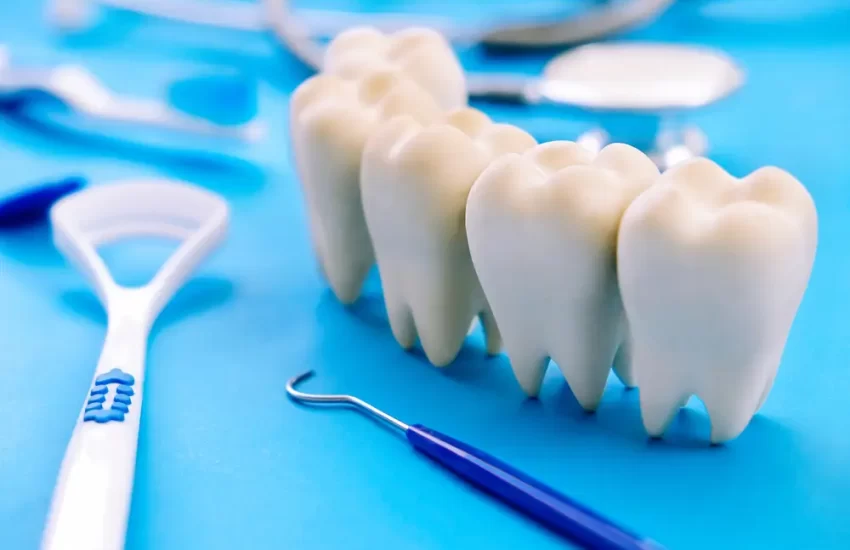Are you one of the countless individuals whose heart rate inexplicably rises at the mention of a dental appointment? Do you experience sudden bouts of panic or a gut-wrenching dread at the mere thought of a dentist’s chair? If yes, then we’re here to traverse through this maze of fear and anxiety with you – and hopefully towards a less bothersome dentist appointment.
Mermaid Waters Dental Surgery says Overcoming fear and anxiety for a trip to the dentist involves adopting several strategies to ensure a more comfortable and stress-free experience. Start by discussing your fears with your dentist, who can provide reassurance and explain procedures to alleviate concerns. Consider using relaxation techniques such as deep breathing, meditation, or listening to calming music during your appointment. Bringing a friend or family member for support can also help. Gradually desensitizing yourself by scheduling regular, less invasive visits can build familiarity and reduce anxiety over time.”
This blog post is all about exploring that lingering fear many of us experience at the prospect of a dental visit – a phenomena known as ‘Dental Phobia’. Over the next few paragraphs, we’ll delve into defining this fear, understanding why it manifests, and most importantly, how we can keep it at an arm’s length.
In essence, we aim to transform your perception of dentistry from a trip up trembling mountain heights to a casual stroll in the park. Ready for the leap? Let’s begin.
What Is Dental Phobia?
If you experience significant fear or anxiety regarding dentist visits, you might be dealing with dental phobia. This fear, much like other phobias, can lead you to avoid critical dental treatments, eventually affecting your oral health.
Unlike mild anxiety, dental phobia can have severe implications. Not just physical, due to untreated dental issues, but also psychological, leading to feelings of embarrassment about your dental condition. It may occur due to a variety of reasons such as past traumatic experiences or a general fear of pain.
Understanding dental phobia is the first step in addressing it. Once identified, it becomes easier to employ strategies that help soothe the fear and manage the phobia, thereby making dental visits far less daunting.

Why Is Dental Phobia So Prevalent?
The underlying roots of dental phobia often trace back to negative experiences, particularly during formative younger years. An insensitive comment, a painful procedure, or a lack of consideration for a patient’s emotional comfort can all contribute to this fear.
Dental phobia, or an intense fear of dental visits, is prevalent for several reasons, often rooted in psychological, social, and experiential factors.
Media portrayal also plays a significant role in creating a somewhat dramatic and terrifying image of dental procedures, further increasing the likelihood of dental phobia. Additionally, the fear of pain, needles, and the lack of control in the dentist’s chair continue to be the other prominent contributors.
Addressing these root causes and breaking the stigmas surrounding dentistry can assist in decreasing the pervasiveness of this phobia.
By acknowledging and addressing the underlying causes of dental phobia, dental professionals can create a more positive and less intimidating experience for their patients.
Overcoming Dental Phobia: Techniques And Strategies
Overcoming dental phobia is a journey that requires understanding, willpower, and patience. Communication is crucial – sharing your anxieties with the dentist can help them adapt their approach to better suit your comfort level.
Techniques such as deep breathing exercises, guided imagery, and muscle relaxation can also help in managing anxiety. The conscious involvement of distractions, like listening to music or focusing on visual stimuli, can also prove beneficial.
Overcoming dental phobia involves various techniques and strategies designed to make dental visits more manageable and less intimidating. Communicate openly with your dentist about your fears so they can tailor their approach to your needs, providing explanations and reassurance. Practice relaxation techniques like deep breathing, meditation, or progressive muscle relaxation before and during your appointment.
Remember, overcoming dental fear is a gradual process. It’s not about rapid healing but slow progression and consistent effort.
The Role Of Dental Professionals
Dental professionals have a substantial role in easing the anxiety around dental visits. By providing comprehensive information about procedures, maintaining a comforting ambience, and providing moral support, they can help assuage fears.
Professionals equipped with the knowledge of dental phobia can adopt a gentle, empathetic approach, prioritizing the patient’s comfort, thus contributing significantly towards addressing these issues.
dental professionals work collaboratively to ensure comprehensive oral health care. Their combined efforts in prevention, treatment, education, and patient support play a vital role in maintaining healthy smiles and overall well-being.
The Pros And Cons Of Sedation Dentistry
One of the preferred ways to manage dental fear and anxiety is sedation dentistry, wherein various medications are used to help patients feel relaxed during procedures.
Sedation dentistry drastically lessens anxiety and discomfort, ensuring the patient remains calm throughout. However, it’s important to note that certain risks, such as allergic reactions or over-sedation, although rare, do exist.
Therefore, while sedation dentistry can evidently be a valuable ally against dental phobia, it should be used judiciously, under expert supervision.

Conclusion
Dental Phobia is indeed a Herculean hurdle for many individuals. However, by understanding the root causes, employing varied anxiety management techniques, apprising dental professionals about your fears, and exploring possibilities such as sedation dentistry, the path can become far less intimidating.
Dentistry is a dynamic and expansive field that ensures our oral health is maintained from different angles. From prevention to restoration, from children’s oral health to complicated surgical procedures, each specialty brings something unique to the table.
Remember, the aim isn’t to eliminate fear overnight. It is to steadily learn to manage anxieties better with each dental visit. Just as a home slowly, but surely, morphs itself into a more comfortable and inviting space, let us strive to transform the dentist’s chair into one. Safe, welcoming, and perhaps, even the source of our best smiles!
